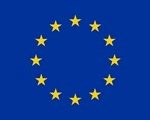
- This event has passed.
juDFT: Hands-on DFT codes from Jülich
September 22, 2014 - September 26, 2014
Density-functional theory (DFT) provides the most efficient and practical framework to compute atomistic properties of solids, liquids, clusters and molecules from the basic laws of quantum mechanics and has spread to various applications in physics, chemistry, materials science, biology, mineralogy, engineering etc. Atomistic computations have achieved a high degree of sophistication. In many cases one can predict the observable properties “ab-initio” without any adjustable parameters. A diverse spectrum of versatile, complex and rather sophisticated electronic structure methods has been developed to compute an unmanageably large variety of properties in a multitude of rather different systems. The use and application of these electronic structure methods require a thorough training at a location where users meet developers of such methods.
There is an increasing request from users to provide a tutorial on the DFT codes from Jülich(www.judft.de). Well established is the FLEUR code, a publicly available FLAPW package, that was developed in the recent years along the direction of treating electronically complex bulk materials and materials in two and one dimension. It is able to deal with complex non-collinear magnetism, excitations on the basis of many-body perturbation theory and spin-dependent transport properties. Additional codes from Jülich include the massively parallellized finite-difference code juRS, suitable for structural relaxations and calculations of large unit-cells. The Jülich supercomputing center (JSC) provides unique capabilities for such applications.

